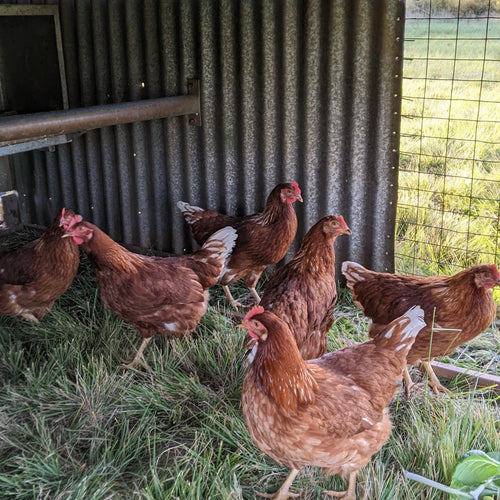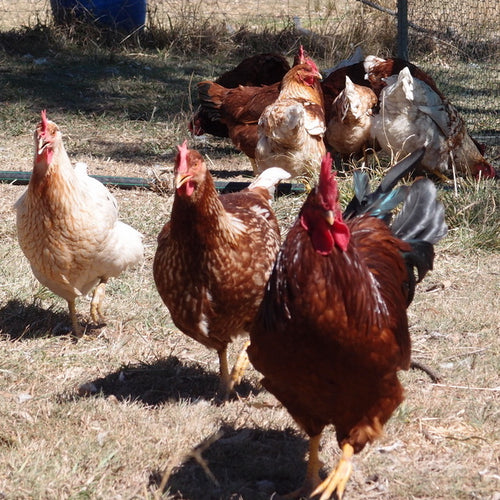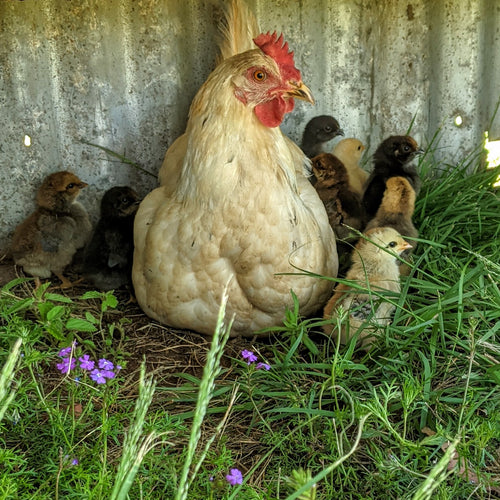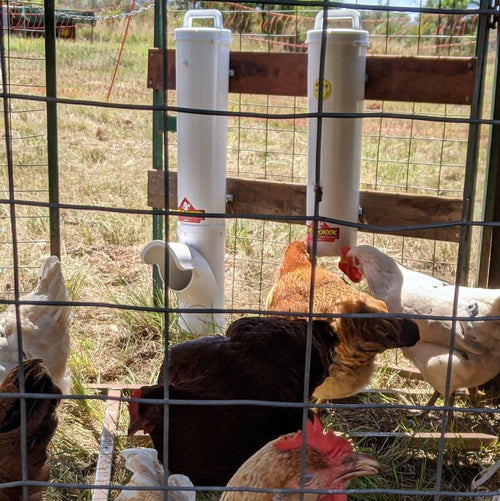Why do we have so many chickens?
You could just as easily ask "why do we sell eggs?" or "what came first, the chicken or the egg?".
First we had some chickens, and they laid eggs and we ate eggs every day, but then winter came and we had chickens, but not always eggs. So we realised that if we wanted to eat eggs every day in winter we would need more chickens, and we bought and hatched more chickens. And now we have too many eggs in spring and summer. So we sell the eggs.
We currently have 21 hens and 5 roosters (soon to be two roosters as soon as there's some space in the freezer for the other three). The hens lay 12-14 eggs/day. We eat 1-2 eggs each per day. I bring the excess eggs to work to sell. I sell them for $5/carton. I used to sell the eggs for much less, but fortunately for us, people in Brisbane are happy to pay a fair price for the eggs. At this rate we can cover our feed costs through spring and summer, so on balance through the year, it doesn't cost us any extra to keep the chickens (also considering that we use the old hens for meat when they stop laying).
| so many chickens.... |
First we had some chickens, and they laid eggs and we ate eggs every day, but then winter came and we had chickens, but not always eggs. So we realised that if we wanted to eat eggs every day in winter we would need more chickens, and we bought and hatched more chickens. And now we have too many eggs in spring and summer. So we sell the eggs.
We currently have 21 hens and 5 roosters (soon to be two roosters as soon as there's some space in the freezer for the other three). The hens lay 12-14 eggs/day. We eat 1-2 eggs each per day. I bring the excess eggs to work to sell. I sell them for $5/carton. I used to sell the eggs for much less, but fortunately for us, people in Brisbane are happy to pay a fair price for the eggs. At this rate we can cover our feed costs through spring and summer, so on balance through the year, it doesn't cost us any extra to keep the chickens (also considering that we use the old hens for meat when they stop laying).
If you are thinking about getting chickens remember that your chickens will probably stop laying through winter, if not the first year, then definitely the second year. If you want to sell eggs, remember that you will only have excess eggs in spring and summer. To work out the ideal number of hens, work out how many eggs you want in winter, and how much you can sell the eggs for when you have excess vs how much it will cost you to feed the hens through the year.
Legally, we are not really supposed to sell eggs in Queensland unless we are accredited with Food Safety Queensland and "have an approved food safety program that shows they are controlling and reducing significant food safety hazards in the production of their eggs". No wonder eggs are so expensive! Lucky I sell my eggs for hatching, not for human consumption.....
Some of the tips in that link apply to both eggs for eating and for hatching:
- Eggs should be clean and not broken
- Egg cartons should be clean (I reuse clean cartons only)
I don't wash eggs because I don't want to remove the natural "bloom" layer that protects the eggs. If eggs are a little dirty, I wipe them with a dry cloth. Any eggs that need more than a dry cloth I don't sell, but I wipe with a damp cloth before I use them. They are no good for hatching, so best to just eat them.
This brings me to the interesting question of refrigerating eggs. Through the cooler months we do not refrigerate eggs, and I think this useful because for most recipes its better to have eggs at room temperature. However, as we have roosters and most of our eggs are fertile, in the hotter summer months it is better to refrigerate our eggs so that customers do not receive a nasty surprise. Eggs that are washed should also be refrigerated.
How many hens do you keep and do you sell the eggs?























Leave a comment